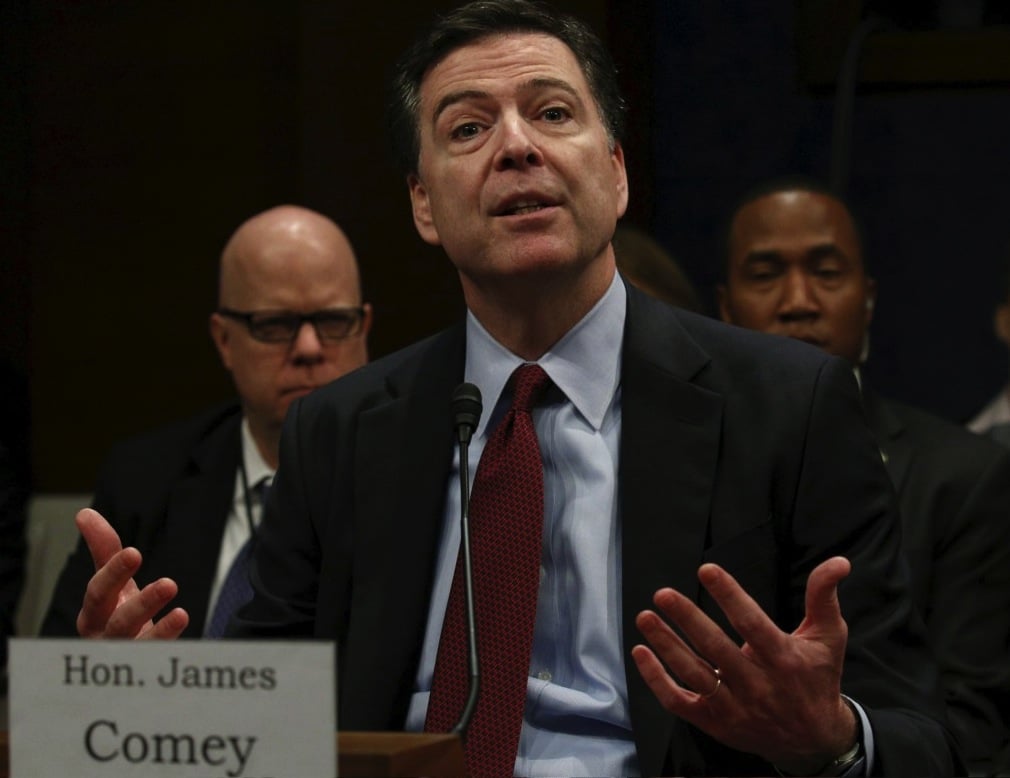
There is a new and intriguing document related to the Russian investigation out this week. Justthenews has released a previously undisclosed email from former FBI Director James Comey that raises additional questions about his role in using the now discredited Steele dossier as part of the FBI Russian investigation. The email on Jan. 12, 2017 email to then-Director of National Intelligence James Clapper falsely claims that Christopher Steele was found to be “reliable” but then states that the FBI could not “sufficiently corroborate the reporting.” The email went out the same day that Comey signed a FISA surveillance warrant application declaring that content from Christopher Steele’s dossier had been “verified.” We are still waiting for the results of the John Durham investigation but this email raised additional questions about Comey’s role. Comey has testified that he would not have approved such surveillance if he knew then what he knew now about the Steele dossier.
Comey signed a statement to the secret court that the information was “verified” on the same day that he admitted to Clapper that “We are not able to sufficiently corroborate the reporting.” Yet, he also did not tell Clapper what the FBI had already knew about Steele and Carter Page. While Comey later insisted that he was unaware of basic information, he was signing applications for secret surveillance and advising Clapper without either confirming or disclosing information.
The CIA had already told the FBI that Page was a US intelligence asset, not a Russian spy. It had also been warned that Hillary Clinton’s campaign was trying to plant a false Russian collusion story in the media. (The Clinton campaign and its attorney Marc Elias had reportedly denied that the campaign funded the dossier until after the election) It was also told that Steele’s primary source was a suspected Russian agent and that is network was compromised by Russian intelligence. Steele had also been reportedly terminated by the FBI as a source because of his efforts to plant stories in the media.
Comey mentioned none of this and instead cautioned Clapper against a statement saying that there was no judgment on the reliability of the Steele dossier. He was opposed to a public statement declaring that the Steele dossier was only mentioned in an appendix to the intel community’s report because the “IC has not made any judgment that the information in the document is reliable.” Comey insisted he was reliable:
I just had a chance to review the proposed talking points on this for today. Perhaps it is a nit, but I worry that it may not be best to say ‘the IC has not made any judgment that the information in the document is reliable.’ I say that because we HAVE concluded that the source is reliable and has a track record with us of reporting reliable information; we have some visibility into his source network, some of which we have determined to be sub-sources in a position to report on such things; and much of what he reports in the current document is consistent with and corroborative of other reporting included in the body of the main IC report.
So Comey worked to preserve the public narrative in support of the Steele dossier, which was being widely disseminated and fueled what was later found to be an unsupported conspiracy theory. He did so while admitting later “That said, we are not able to sufficiently corroborate the reporting to include it in the body of the report.”
While the media is unlikely to follow up on this new document (any more than the prior discrediting of the Steele dossier), it could give a glimpse into the type of information that Durham is exploring in his investigation.
Reprinted with permission from JonathanTurley.org.

